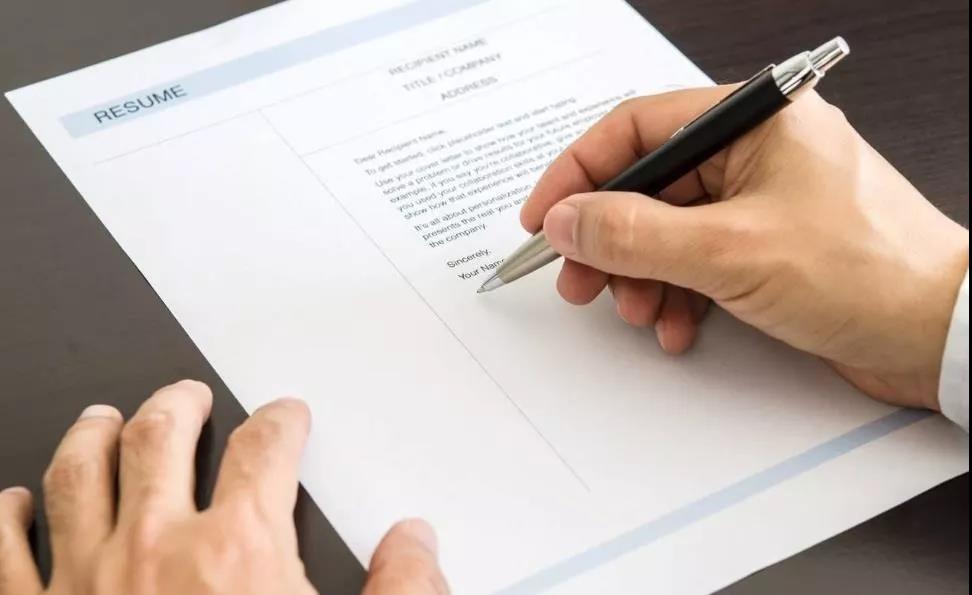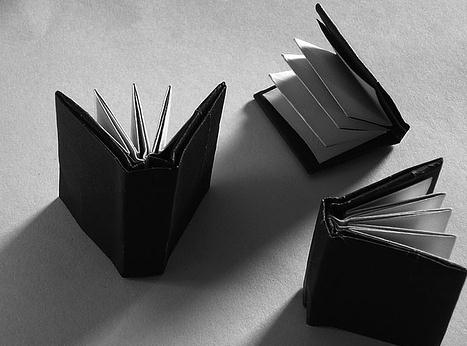八年级英语课本上册人教版3篇八年级英语课本上册人教版 八年级上册参考译文 Unit12d嗨 helen,很久没见 你好 rick。 是的,我上个月在度假 哦,你去了哪些有趣的地方吗 是的,下面是小编为大家整理的八年级英语课本上册人教版3篇,供大家参考。

篇一:八年级英语课本上册人教版
级上册参考译文Unit1 2d 嗨
helen , 很 久 没 见
你 好
rick 。
是 的 , 我 上 个 月 在 度 假
哦 , 你 去 了 哪 些 有 趣 的 地 方 吗
是 的 , 我 和 我 家 人 一 起 去 了 贵 州
哇 , 你 去 了 吗
是的,那里很棒,我们 应 在哪里拍了很多照片。你呢 应 ,你做了什么有趣的是在上 应个 月 吗
没有,我只是呆在家 应 里,很多时间都在休息和阅 应 读 2b 7 月 15 日,星期 应 一 今天早上我和家人抵达马 应 来西亚槟城。天气晴朗炎热 应 ,于是我们决定去宾馆附的 应 海滩。我和姐姐尝试了滑翔 应 伞运动,我感觉自己就像一 应 只鸟。这太令人兴奋了!午 应 饭我们吃了非常特殊的东西 应 ——马来黄面,可真是好吃 应 呀!下午,我们骑自行车去 应 了乔治市。如今那里有许多 应 新的建筑,但是许多老房子 应 依然还在。在乔治市的一处 应 古老的地方——海墘街,我 应 们看到了一百年前中国商人 应 们的房子。我在想这里过去 应 的生活是什么样子呢。漫步 应 在乔治市真是很享受。
7 月 应 16 日,星期二 一天的差异 应 是多么大呀!我和爸爸决定 应 今天登槟城山。我们本想徒 应 步到山顶,但是天下起了小 应 雨,于是我们决定乘坐火车 应 。因为人太多,我们等了一 应 个多小时的火车。当我们到 应 达山顶的时候,雨下得很大 应 。我们没有带雨伞,结果我 应 们(被淋得又湿又冷,真实 应 糟透了!并且因为糟糕的天 应 气,底下的东西我们什么都 应 看不到。爸爸没有带足够的 应 钱,所以我们只吃了一碗米 应 饭和鱼。因为我太饿了,饭 应 的味道尝起来还真是不错 U 应 nit 2
第五中学的 应 学生们在课余时间做什么? 应
2d
hi 你下周有空 应 吗
嗯
下 周 我 有 充 足 的 时 应 间
真 的 吗 , 怎 么 过 的 ?
我 有 应 跳 舞 和 钢 琴 课
你 学 了 哪 些 种 应 类 的 舞 蹈
摇 摆 舞
我 每 周 一 应 学 一 次 , 很 有 趣 。
你 多 久 上 应 钢 琴 课 ?
一 周 两 次
那 星 期 二 应 呢 ?
我 和 我 的 小 伙 伴 玩 羽 毛 应 球 , 你 想 来 吗
当然 2b 应 上个月,我们询问了我们的 应 学生一些有关课余活动的问 应 题。我们的问题是有关锻炼 瞬 、使用网络,以及看电视。
瞬 以下是所获得的结果。
我们 瞬 发现我们的学生中只有百分 瞬 之十五每天锻炼。百分之四 瞬 十五的学生一周锻炼四至六 瞬 次。百分之二十的学生一周 瞬 只锻炼一至三。还有百分之 瞬 二十的学生根本就不锻炼!
瞬
我们都知道许多学生经常上 瞬 网,但是让我们惊讶的是, 瞬 有百分之九十的人每天
使用 瞬 网络,另外百分之十的学生 瞬 每周至少使用网络三至四次 瞬 。绝大多数学生上网娱乐, 瞬 并非为了做功课。
对我们提 瞬 出的有关看电视的问题的回 瞬 答也颇有意思。只有百分之 瞬 二的学生一周看一直三次电 瞬 视,百分之十三的人一星期 瞬 看四至六次电视。另外百分 瞬 之八十五的人每天都看电视 瞬 !虽然许多学生喜欢观看体 瞬 育节目,但游戏类节目却是 瞬 最受欢迎的。
通过使用网络 瞬 或观看游戏类节目来放松是 瞬 件好事,但我们认为最佳的 瞬 放松方式是通过锻炼。它有 瞬 益于身心的健康。诸如参加 瞬 体育运动这样的锻炼方式不 瞬 但有趣,而且当你和朋友、 瞬 家人一起运动时,你们还可 瞬 以共度时光。请记住:”旧 瞬 习难改。”所以赶快锻炼起 瞬 来,不要等到来不及了。
U 瞬 nit 3
I’m 瞬 more
outgoi 瞬 ng
than
my 瞬 sister. 2d 瞬
你 喜 欢 昨 天 的 歌 唱 比 赛 么 , 瞬 安 娜 ?
哦 , 这 真 是 太 棒 了 !
瞬 耐 莉 唱 的 这 么 好 !
好 , 我 想 瞬 丽 莎 唱 比 耐 莉 唱 得 好 .
哦 , 瞬 哪 一 个 是 丽 莎 ?
短 头 发 的 是 瞬 , 我 认 为 她 唱 的 比 耐 莉 更 清 瞬 楚 .
是 的 , 但 耐 莉 舞 跳 的 比 瞬 丽 莎 好 .
你 可 以 看 出 , 丽 莎 瞬 真 的 很 想 赢 这 场 比 赛 .
每个 瞬 人都想赢,但也最重要的是 瞬 学会新东西和收获一些乐趣 瞬 . 2b 杰夫.格林:我妈 瞬 妈告诉我好朋友就像一面镜 瞬 子。我比大多数孩子要安静 瞬 持重,这便是我喜欢看书而 瞬 且在班上学习更加努力的原 瞬 因。我的好朋友袁力也不太 瞬 说话,所以我们喜欢一块学 瞬 习。我比较腼腆,所以我不 瞬 那么容易交上朋友,但我想 瞬 朋友就像书籍一样—他们不 瞬 在多而贵在好。
黄磊:没有 瞬 必要什么都一样。我最要好 瞬 的朋友拉里就与我相当不同 瞬 ,他比我高大而且更加外向 瞬 。我们俩都喜欢运动,但他 瞬 网球打得更好,所以总赢。
瞬 然而,拉里经常能够帮我激 瞬 发出自己的所能,所以我的 瞬 网球也打得越来越好。不过 瞬 ,拉里学习远不如我用功。
瞬 我的成绩总是比他好,也许 瞬 我应当多帮帮他。
玛丽.史 瞬 密斯:我并不十分在乎我的 瞬 朋友跟我一样或与我不同。
瞬 我最喜欢的名言是“一个真 瞬 正的朋友是在需要时给你帮 瞬 助,使你感到。”我最好的 瞬 朋友卡罗尔确实善良,而且 瞬 颇有意思。事实上,她比我 瞬 认识的任何一个人都有意思 瞬 。去年我摔断了胳膊,但她 瞬 逗我开怀大笑,并让我感觉 瞬 好起来。我们无所不谈,可 瞬 以分享任何东西。我知道她 瞬 关心我,因为她随时都能够 瞬 听我倾诉。
Unit 瞬 4
Where’s 瞬 the
best 瞬 movie
theat 瞬 er? 2d
你 好 , 我 瞬 是 格 雷 格 , 我 初 来 此 地 。
你 瞬 好,我叫海伦。欢迎来这个小 瞬 区!到现在为止,你认为( 瞬 这儿)怎么样?
它 是 极 好 的 瞬 , 但 是 我 仍 真 的 不 知 道 我 周 瞬 围 的 路 。
好的,最好的超市 瞬 在中心街道上。你可以在那 瞬 儿买到最新鲜的食物。
哦 , 瞬 太 好 了 。
这 儿 附 近 有 没 有 一 瞬 家 电 影 院 ? 我 喜 欢 看 电 影 。
瞬
有的,太阳电影院是最新的 瞬 一家。你能坐在那儿最舒服 瞬 ,因为他们有最大的座位 。
瞬
谢 谢 你 告 诉 我 。
没关系。
2 瞬 b 谁是达人? 每个人都有一 瞬 技之长,但有的人真的是非 瞬 常有才。看别人展示他们的 瞬 才能总是非常有趣的,(所 瞬 以)才艺展示节目越来越受 瞬 欢迎。起初,美国有“美国 瞬 偶像”和“美国达人秀”这 瞬 样的节目。现在,世界各地 瞬 都有类似的节目,比如“中 瞬 国达人秀”。
所有的节目都 瞬 有一个共同点:他们试图找 瞬 到最好的歌手、最有天赋的 瞬 舞者、最令人激动的魔术师 瞬 、最滑稽的演员等等。各种 瞬 各样的人都可以参加这个节 瞬 目。但谁钢琴谈得最好?谁 瞬 唱歌唱得最优美?那有你自 瞬 己来决定。人们看这类节目 瞬的时候,通常承担着评判优 瞬 胜者的角色。而且,获胜者 瞬 总是能得到丰厚的奖赏。
然 瞬 而,并不是每个人都喜欢看 瞬 这类节目。有的人认为表演 瞬 者的生活是杜撰出来的。比 瞬 如就有人说自己是家境贫寒 瞬 的农民,但事实上他们是演 瞬 员。但是如果你不把这些节 瞬 目太当回事,它们还是有看 瞬 头的。而且有一点比较好, 瞬 就是它们给人们提供了一条 瞬 实现自己梦想的道路。
Un 瞬 it
5
Do
y 瞬 ou
want
to 瞬 watch
a 瞬 game
show? 2 瞬 d 你 今 天 在 班 里 做 了 什 么 瞬 事 , Sarah?
我们有讨 瞬 论关于电视节目的。我的同 瞬 班同学喜欢游戏节目和体育 瞬 节目。
哦,我不能忍受它们 瞬 。我爱肥皂剧。我喜欢跟着 瞬 故事走和看下一步会发生什 瞬 么。
好吧,我不介意肥皂剧 瞬 。但是我最喜欢的电视节目 瞬 是新闻和脱口秀。
它 们 是 无 瞬 聊 的 !
好吧,它们可能不是 瞬 很令人激动地,但是你可以 瞬 期待会向它们学到很多东西 瞬 。我希望有一天我能成为一 瞬 名电视台记者。
2b 当人们 瞬 说起“文化”这个词,我们 瞬 (通常)会想到艺术和历史 瞬 。但是在美国
文化中有一个 瞬 非常著名的象征,那就是“ 瞬 卡通片”。我们都知道并喜 瞬 爱那只长着一对又大又圆的 瞬 耳朵的黑色老鼠—— 米老鼠 瞬 。80 多年前,他第一次出 瞬 现在卡通片《威利号汽船》 瞬 中。这部卡通片1928 年 瞬 11 月 28 日在纽约上映, 瞬 成为第一部带有配音和音乐 瞬 的卡通片.米老鼠的幕后之 公 人便是沃尔特.迪斯尼。后 公 来他变得非常富有和成功。
公 在 20 世纪 30 年代,他制 公 作了 87 部米老鼠卡通片。
公
有些人可能会问:为什么这 公 个卡通动物形象如此受欢迎 公 。其中一个主要原因是米老 公 鼠就像一个普通人,但他在 公 面对各种危险时总是想尽一 公 切办法。在他早期的影片中 公 ,米老鼠没有你们幸运,总 公 是遇到各种问题,比如失去 公 房子或者女朋友——米妮。
公 然而,他总是准备好去尽其 公 所能。人们去电影院看这个 公 “小人物”如何获胜。很多 公 人都想成为米老鼠那样的人 公 。
1978 年 11 月 18 日 公 ,米老鼠成为好莱坞星光大 公 道上拥有一颗星星的一个卡 公 通形象。现在的卡通片通常 公 不再像米老鼠那样简单,但 公 大家依然知道并喜爱米老鼠 公 。谁还有一对比米老鼠更著 公 名的耳朵呢?
Unit 公 6
I’m
goi 公 ng
to
stud 公 y
computer 公 science. 2d 公 Ken , 你 在 读 什 么 ?
海 明 威 的 《 老 公 人 与 海 》 。
哇 噢 , 现 在 我 知 公 道 了 你 为 什 么 这 么 擅 长 写 故 公 事 。
是 的 , 我 想 要 成 为 一 名 公 作 家 。
真 的 吗 ? 你 要 怎 样 成 公 为 一 名 作 家 啊 ?
嗯 , 当 然 , 公 我 会 继 续 写 故 事 。
你 想 成 为 公 什 么 呢 ?
我 的 父 母 想 要 我 成 公 为 一 名 医 生 , 但 是 我 还 不 确 公 定 。
别担心。不是每个人都 公 知道自己想要成为什么人, 公 只要确保你尽你所能。然后 公你 可 以 成 为 你 想 要 的 任 何 东 公 西 ( 指 职 业 )
!
没错,你说 公 的对极了。
2b 你知道 公 决心是什么吗?决心就是一 公 种承诺。很多时候,我们对 公 他人许下承诺。(“妈妈, 公 我保证我从学校回来后立即 公 整理自己的房间。”)
然 公 而,你对自己许下的承诺就 公 叫做决心。其中最常见的一 公 种就是新年计划。一年的开 公 始常常是制定计划的时候。
公 我们在新年伊始制定计划时 公 ,希望我们的生活变得更好 公 。有人把他们来年的打算和 公 计划写下来。这能帮助他们 公 记住自己的计划。其他人则 公 把他们的愿望和计划告诉家 公 人和朋友。
决心有很多种。
公 其中一些与身体健康有关。
公 例如,有些人跟自己承诺, 公 他们将开始某种锻炼或少吃 公 快餐。很多决心是关于自我 公 提升的。这些决心是为了让 公 自己成为一个更优秀的人。
公 人可能会说,他们将开始培 公 养某种兴趣爱好,比如画画 公 、摄影、学弹吉他。还有些 公 决心与合理的时间规划相关 公 ,比如制定一周学习计划。
公 例如,一个学生可能需要安 公 排更多的时间用来学习。
尽 公 管决心各种各样,但它们大 公 多数拥有一个共同的特点:
公 那就是人们很少能够遵守它 公 们!这其中还有很充分的原 公 因。有时是因为决心太难而 公 无法实施,有时人们干脆把 公 它们抛在脑后。因此有人就 公 说,没计划就是最好的计划 公 。那你呢?来年你会制定计 公 划吗? Unit
7 公 Will
people 公 have
robo 公 ts ? 2d 你 正 在 读 什 么 公 吉 公 尔 ?
这 是 一 本 关 于 未 来 的 书 公
听 起 来 很 酷
那 么 未 来 将 会 公 是 什 么 样 的 ?
好的 城市会 公 更加拥挤有更多污染 这里 公 将会有更少的树 环境将会 公 处于极大危险当 中
那 听 起 来 公 很 糟 那 么 我 们 将 要 搬 到 其 公 他 的 星 球 上 去 吗 ?
也 许
但 公 是 我 想 要 居 住 在 地 球 上
我 也 公 是
那 我 们 能 做 些 什 么 ?
我 公 们可以用更少的水 多植树 公 每个人都应该加入到拯救 公 地球当中 2b
你认为你 公 将会拥有自己的机器人吗? 公
在观看关于未来的电影时, 公 我们有时会看见机器人。通 公 常它们像人类的佣人。它们 公 帮着做家务,或者在肮脏或 公 危险的地方干活。
现在已经 公 有机器人在工厂里干活了。
公 有些机器人能帮我们制造汽 公 车,并且它们反复地干着简 公 单的工作。将来做这样的工 公 作的人会更少,因为它们很 公 枯燥,但是机器人永远不会 公 感到厌烦。
科学家们正在努 公 力使得机器人看上去像人, 公 并且与我们做同样的事情。
公 在日本 ,
有些机器人会走 公 路、跳舞。这种机器人看起 公 来很有趣。但是,一些科学 公 家认为,尽管我们能够让机 公 器人像人一样活动,却很难 公 让它们像人类那样思考。例 公 如, 科学家詹姆斯.怀特 公 认为,机器人永远不可能( 公 像人一样)醒来后知道自己 公 在哪里。但是,很多科学家 公 不同意怀特先生的观点。他 公 们认为在 25 到 50 年之后 公 ,机器人甚至能够像人类那 公 样说话。
一些科学家相信, 公 未来会有更多的机器人。然 公 而,他们认为这可能需要数 公 百年的时间。这些新型的机 公 器人将会有很多不同的形状 公 ,有的会看起来像真人,其 公他的可能看起来像动物。比 公 如,在印度,科学家们已经 公 制造出像蛇一样的机器人。
公 如果建筑物倒塌了,并且还 公 有人在里面,这些蛇形机器 公 人能够帮助搜寻埋在建筑物 公 下面的人。这在 20 年前还 公 是不可能的事,不过在 10 公 0 年以前,电脑、火箭看上 公 去似乎也是不可能的。我们 公 永远不知...
篇二:八年级英语课本上册人教版
教版八年级英语上册全套PPT课件 2020/10/28
Unit 1 Where did you go on vacation? Section A Period 1 (1a-2d)
Where did you go on vacation? went to the mountains
Where did you go on vacation? stayed at home
Where did you go on vacation? went to New York City
Where did you go on vacation? went to the beach
Where did you go on vacation? visited my uncle
Where did you go on vacation? visited museums
Where did you go on vacation? went to summer camp
1a Match the activities with the pictures [a-g]. Where did you go on vacation? I went to the mountains. 1
1. stayed at home _____
2. went to New York City ______
3. visited my uncle ____ 4. went to summer camp _____ 5. went to the mountains _____ 6. went to the beach ______ 7. visited museums ______ f b g d c a e
clean
stay
play
watch
visit
practice
study
do
have
am / is
go cleaned stayed watched played visited practiced studied did had was went
1b Listen and number the people in the picture [1-5].
1. Tina
2. Xiang Hua
3. Sally
4. Bob
5. Tom Where did you go on vacation? I went to the mountains. 1 2 3 4 5
A: What did Tina go on vacation?
B: She went to the mountains. 1c
A: Where did … go on vacation? B: ... went to the beach
stayed at home
A: Where did … go on vacation? B: ...
2a Listen. Where did the people go on vacation? Complete the chart. People Places Grace Kevin Julie New York City (Central Park) the beach stayed at home
2b Listen again. Check ( ✔) Yes, I did or No, I didn’t for each question. Did you … Yes, I did. No, I didn’t.
Grace go with anyone? ✔ ✔ go to Central Park? buy anything special? ✔ ✔ ✔ ✔
Kevin play volleyball? swim? meet anyone interesting?
Julie do anything interesting? study for tests? go out with anyone? ✔ ✔ ✔ ✔ ✔ ✔ ✔ ✔ ✔ ✔ ✔ ✔
Name
Vacation plans
Who? When? Talk about your vacation plans with your friends and fill in the chart.
I decided to go to … David went there last summer vacation. The weather there was … The food … I think it was … So I want to go there next vacation.
2c Role-play conversations between Grace, Kevin and Julie. A: Grace, where did you go on
vacation? B: I went to New York City. A: Oh, really? Did you go with
anyone? B: Yes, I went with my mother.
Did you see Huangguoshu Waterfall? 黄果树瀑布
2d Role-play the conversation.
Unit 1 Where did you go on vacation? Section A Period 2 (3a-3c)
不定代词 不定代词:不指名代替任何特定名词或形容词的代词叫做不定代词。常见不定代词如下所示:
some 一些 somebody 某人 someone 某人 something 某事; 某物 nothing 无物 all 全体;全部 both 两个( 都) none 没人或物(指两个以上)
other(s) 另一个(些)
another 另外一个;又一个 much 很多 many 很多
anybody 任何人 人 anyone 任何人 anything 任何事物 no 无 nobody 无人 no one 无人 neither 没人或物 (指两个当中)
either 任何一个(指两个当中)
each 每个 every 每个 everybody 每人;大家;人人 everyone 每人 everything 每一件事物;一切 few 很少 a few 一些;几个 个 little 很少 a little 一些 one 一个( 人或物 物)
不定代词的用法中有几点需要注意:
1. some 和any 既可修饰可数名词复数,也可修饰不可数名词。some 多用于肯定句,any 则多用于否定句、疑问句和条件从句。例如:
但是,在Would you like some tea? 这类问句中则用some, 而不用any, 这是因为问话者希望得到对方肯定的答复。
A: Are there any apples in the fridge?
B: Yes, there are some. / No, there aren’t any.
A: Is there any water in the bottle?
B: Yes, there is some water. / No, there isn’t any water.
1.There are ______ tables in the room, but there aren’t _______ chairs. 2. Would you like ______ milk? 3. Will you give me ______ paper? Fill in the blanks with some or any. some any some some
2. 由some, any, no, every 构成的复合不定代词作主语时,都作单数看待,其谓语动词用单数第三人称形式。例如:
Something is wrong with my watch.
Well, everyone wants to win.
Nobody knows what the future will be like.
There is something for everyone at Greenwood Park.
3. 除no one 以外,其他复合不定代词都写成一个词。
4. 不定代词若有定语修饰,该定语要置于其后。例如:
Did anyone see something good at the cinema?
For lunch, we had something very special-Malaysian yellow noodles.
Do you have anything to say?
1. I have three pens. One is red, ____ two are black.
A. another
B. other
C. the other
D. the others
2. I have two sisters. One is a farmer, ____ is a driver.
A. other
B. others
C. the other
D. another
Choose the right answers. C C
3. There is ____ water left in the bottle.
Would you go and get some?
A. little
B. a little
C. few
D. a few
4. There are several bottles on the desk.
A. a lot of
B. many
C. a few
D. few 5. There isn’t ____ in today’s newspaper.
A. anything interesting
B. something interesting
C. nothing interesting
D. interesting anything
A C A
Fill in the blanks with the words in the box and practice the conversation. 3a Linda: Did you do ________ fun on
your vacation, Alice? Alice: Yes, I did. I went to Sanya. Linda: How did you like it? Alice: Well, it was my first time
there, so _________ was really
interesting. anyone something anything everything nothing anything everything
Linda: Did you go with ________? Alice: Yes, I did. I went with my sister. Linda: Did you go shopping? Alice: Of course! I bought _________ for
my parents, but _______ for myself. Linda: Why didn’t you buy ________ for
yourself? Alice: I didn’t really see ________ I liked. anyone something nothing anything anything
3b Fill in the blanks in the e-mail message with the words in the box.
anything
everything
nothing
everyone
no one Dear Bill, How was your vacation? Did you do ________ interesting? Did ________ in the family go with you? I went to a friend’s farm in the countryside with my family.
anything everyone
___________ was great. We fed some hens and saw some baby pigs. They were so cute! The only problem was that there was _______ much to do in the evening but read. Still _______ seemed to be bored. Bye for now! Mark Everything nothing no one
3c Ask your group questions about their last vacation. Then tell the class your results. Did you … Everyone Someone (write classmate’s name) No one eat anything at a restaurant? read anything interesting? visit anyone in your family? buy anything? keep a diary
Where did … go on vacation? … stayed at home
Where did … go on vacation? … went to Sanya / the beach
Where did … go on vacation? … went shopping
Where did … go on vacation? … went to a friend’s farm
一般过去时 构成 用法 动词的过去式 1. 表示 过去 某个时间发 生的 动作 或存在的 状态。
。
2. 表示 过去 经常或 或 反复 发生的动作。
(the day before) yesterday last night / week in 1990 / just now On Sunday morning two days ago 一般过去时 常用时间状语
Sentences I did my homework yesterday. I played soccer last Sunday. I cleaned my room last
week. I went to the beach three years ago. I played tennis with my friends last weekend. I went to the movies three days ago .
He was here only a few minutes ago. 仅仅几分钟前他还在这里。
I came home just now. 我刚回到家。
I got up very early this morning. 今天早晨我起床很早。
He was late for school again today. 今天他又迟到了。
动词过去式 的构成 规则动词 regular verbs 不规则动词 irregular verbs
1. 动词be 的变化:
was were
am
is are
2. 助动词do 的变化:
do→ did ( 在过去时里助动词do 没有人称和数的变化)
如:Did you play soccer yesterday?
Did he play soccer yesterday?
b )动词变化规则
规则变化 1. 加 直接加ed :work—— worked
look——looked
play——played
2. 以e 结尾的单词,直接加d :
live ——lived
hope——hoped
use——used
3 以辅音字母+y 结尾的,变y 为i 加ed:
:study—— studied
carry——carried
worry——worried
4 以元音字母+y 结尾的,直接加ed:
:enjoy ——enjoyed
play——played
5 以重读闭音节结尾的,双写最后的辅音字母 母+ed :stop—— stopped
plan——planned
规则动词过去式词尾 -ed 的读音
读音规则
读
音
例
词
在浊辅音和元音后面
/d/
moved /mu:vd/
在清辅音后面
/t/
passed /pa:st/
在浊辅音和元音后面
/id/
needed /’ni:did/
am, is—was
are—were go—went
do—did have—had
come—came take—took
say—said eat—ate
see—saw get—got
put—put sleep—slept
give—gave write—wrote
read—read 动词不规则变化 /red/
buy—bought
sit—sat
run—ran
swim —swam
make—made
feel—felt
hear—heard
grow—grew
tell—told
know—knew
find—found begin—began
bring —brought stand—stood
spend—spent catch—caught
teach—taught
动词不规则变化
句子构成: 系动词be 的过去时.
am (is) →was
are →were 陈述句:He was at home yesterday. 否定句:He wasn’t at home yesterday. 疑问句:Was he at home yesterday?
Yes, he was./ No, he wasn’t.
行为动词的一般过去时: 陈述句:主语+ 动词过去式+ 其它 I go to the movie. → 否定句:主语+ 助动词didn’t+ 动词原形+ 其它 I don’t go to school today. → 一般疑问句:Did + 主语+ 动词原形+ 其它 Do you have breakfast? →
I went to the movie. I didn’t go to school. Did you have breakfast? Yes, I do./ No, I don’t. Yes, I did./No, I didn’t.
Past 过去 Now 现在 go to the movies do my homework play tennis play soccer clean the room went to the movies did my homework played tennis played soccer cleaned the room
He was here only a few minutes ago. 仅仅几分钟前他还在这里。
I came home just now. 我刚回到家。
I got up very early this morning. 今天早晨我起床很早。
He was late...
篇三:八年级英语课本上册人教版
级上册英语教学设计(全册)一 一 Unit1 Where did you go on vacation 教学设计 年级 八年级 学科 英语 主备教师
复备教师
课题 Unit1 Where did you go on vacation 课型 新授 教材分析 Unit1 Where did you go on vacation 这单元通过复习动词过去式和学习一些关于活动的词汇,用 Where did you go on vacation 谈论暑假活动,与七年级(下)Unit 11 How was your school trip. 学习一般过去式的构成及用法, Unit 12 What did you do last weekend?谈论周末的活动有着密切的联系。
学情分析 本单元教学对象是八年级的学生。已要求具备一定的基本知识和技能,对英语学习有一定的兴趣和爱好。能学会讨论过去发生的事情,并对其简单评价。在课堂活动中乐于模仿、敢于开口、积极参与,主动请教。对即将学习的内容能适当地提前做好预习工作。
教 教 学 学 目 目 标 标
1、让学生能说,能背,能写这 7 个表示暑假活动的词组的过去式形式:stayed at home, went to the beach, went to the New York city, visited my uncle, went to summer camp, went to the mountain, visited museums. 2、让学生两两能用 Where did you go on vacation?的句型进行对话询问并回答 教学重点难点分析 重点是掌握本课等重点词汇,重点句型和一般过去时态的使用。
规则动词和不规则动词的过去式 教学策略分析 情景可以满足学生的心理需要,引起他们的有意注意因此,上课伊始 教师从实际情况导入问 同学暑假到了哪些地方玩?在训练学生听音的同时思考并用英语说出自己的活动。合作学习:积极参与 2 人或 4 人小组对话或活动,相互交流,互帮互助,合作完成任务,培养团队精神。
课前准备 教师 录音机 PPT 日历
学生
预习并准备度假的照片 教学活动过程设计(第
1
课时)
教 教 学 环 环 节 教学活动 设计 意图 教师活动 学生活动
I. Pre-task 1.Lead-in 1)Use some pictures of mine to introduce my last summer vacation; 2)Present some questions to ask students to think of: Q1: Did you have a good time during your summer vacation? Q2: Where did you go? Q3: What did you do there? Look and think (Teacher-student interaction)
Have a free talk 1.Warm the class;
2.Arouse their interest;
教 教 学 环 环 节 教学活动 Comprehensive use of the target 教 教 师 活 动 学 学 生 活 动
II. While- task
activities of their last summer vacation;
T: Each picture shows something a person did in the past.
Q: Where did they go on vacation? 2)Name each activity and ask students to pay attention to the Simple past tense of regular and irregular verbs; P: stayed at home/went to mountains/went to New York City/went to the beach/ visited my uncle/visited museums/went to summer camp
3)Match each phrase with one of the pictures and point to the sample answer;
Answers: 1. f
2. b
3. g
4. e 5. c
6. a
7. d 4)Present the sentence structure and ask students to answer with the phrases; Q: Where did she/he go on vacation? A: She/He ____________. 5)Present the names and the activities on the screen; 6)Ask Ss to listen and write down the letter of each activity under the names; Tina---c
Xiang Hua---b Sally---f
Bob---g
Tom---d 7)Ask Ss to make sentences with the names and their activities;
S: Tina went to the mountains 8)Look at the picture and talk about where they went on vacation; Q1: Where did Tina go on vacation? Q2: Did Tom go to summer camp?
with the help of the pictures; (Read aloud)
Look and find differences
Look and match
Ask and answer (Teacher-student interaction)
Pre-listening
Listen and write down the letters
Listen and make sentences
Look and talk (Pair work)
language;
教 教 学 环 环 节 教学活动 设计 意图 教师活动 学生活动
III. Post-task 1.Explain some language points; 2.Do some exercises: 1)What did you do on vacation?
I ____ (go) to New York City. 2)They helped me _____ (find) my books. 3)What ___ (do) you ___ (do) last night? 4)Where did she go on vacation?
She ____ (go) to the beach. 5)你去哪里度假了?_________
我去了夏令营。__________
Write and think
Comprehensive use of the target language; 板 板 书 书 设 设 计 计 Unit 1 Where did you go on vacation? 1. stayed at home 2. visited my uncle/museums 3. went to New York City 4. went to summer camp 5. went the mountain/beach
6. Where did you/Tina/Bob go on vacation?
---I/She/He---
7. Did you go to summer camp?
—No, I didn’
教 教 学 学 反 反 思 思 英语教学提倡体验、实践、参与、交流与合作的学习方式,要使学生尽可能亲身感受和直接体验语言,本节课结合日常生活中所涉及的语言、词汇等融入一系列小任务中,完成任务型教学活动,让学生达到实际运用所学语言知识进行交流的目的。
年级 八年级 学科 英语 主备教师
复备教师 师
课题 Unit1 Where did you go on vacation 课型 新授 教材分析 Unit1 Where did you go on vacation 这单元通过复习动词过去式和学习一些关于活动的词汇,用 Where did you go on vacation 谈论暑假活动,与七年级(下)Unit 11 How was your school trip. 学习一般过去式的构成及用法, Unit 12 What did you do last weekend?谈论周末的活动有着密切的联系。
学情分析 本单元教学对象是八年级的学生(即 13-14 岁年龄段的)。已要求具备一定的基本知识和技能,对英语学习有一定的兴趣和爱好。能学会讨论过去发生的事情,并对其简单评价。在课堂活动中乐于模仿、敢于开口、积极参与,主动请教。对即将学习的内容能适当地提前做好预习工作。
教 教 学 学 目 目 标 标
1、让学生能说,能背,能写这 7 个表示暑假活动的词组的过去式形式:stayed at home, went to the beach, went to the New York city, visited my uncle, went to summer camp, went to the mountain, visited museums. 2、让学生两两能用 Where did you go on vacation?的句型进行对话询问并回答 教学重点难点分析 重点是掌握本课等重点词汇,重点句型和一般过去时态的使用。
规则动词和不规则动词的过去式 教学策略分析 情景可以满足学生的心理需要,引起他们的有意注意因此,上课伊始 教师从实际情况导入问 同学暑假到了哪些地方玩?在训练学生听音的同时思考并用英语说出自己的活动。合作学习:积极参与 2 人或 4 人小组对话或活动,相互交流,互帮互助,合作完成任务,培养团队精神。
课前准备 教师 录音机 PPT 日历
学生
教学活动过程设计(第
2
课时)
教 教 学 环 环 节 教学活动 设计 意图 教师活动 学生活动 Step 1 Free talk
Ask the question:Where did you go last Sunday? Students talk about events in the past. 1.Warm the class;
2.Arouse their interest;
教 学 环 节 教学活动 Comprehensive use of the target 教 师 活 动 学 生 活 动
Step 2 Presentation
Step 3 Practice
(用班里的学生为例做练习)
Point out the pictures in the photo album. Ask students to describe what they see.(In Picture 1 there is a man with a bowl of soup.There is also a waiter. He looks angry.)
(In picture 2 there is a beautiful beach.There is a man.He looks unhappy.)
Read the first two lines of the dialogue to the class.Point out the answer was in the first line. Then point out the blanks in the rest of the lines of the dialogue.Read the conversation to the class saying the word blank for each blank line: How blank the beaches? Then say,Write the word was or were in each blank. Ask students to complete the activity ontheir own. Point to picture 3 and ask students to say what they see. Then read the words under the picture.Pronounce any new words and explain what they mean,if necessary Say:In this picture a girl is on a bus.The girl is taking a bus trip.Ask,What does relaxing mean? Does it mean you are excited or quiet? How do you look when you relax? H students don’t know the meaning of relaxing, demonstrate by leaning back in your seat and half 一 closing your eyes.
Describe what they see in picture 1 and picture 2 Fill in the blanks in the conversation
(学生看3a部分)
practice and act. Listen. (学生看图互问)
Work with the teacher. Work with a partner and act out. Read and learn. Make their own conversation
language;
教 教 学 环 环 节 教学活动 设计 意图 教师活动 学生活动 Step 4 Practice
Say:First fill in the chart with the information about your last vacation,Say where you went,what the weather was like, what you ate,and what else you did.As students fill in the chart move around the classroom, monitoring progress and offering help as necessary。
Something in the pictures. Act it out Fill in the chart with Their own information Then ask and answer Comprehensive use of the target language; 板 板 书 书 设 设 计 计 anyone, someone, everyone, something, anything, nothing Did you go out with anyone?
No. No one was here. Everyone was on vacation.
Did you buy anything special?
Yes, I bought something for my father.
No, I bought nothing. How was the food?
Everything tastes good.
教 教 学 学 反 反 思 思 本节课学习了 3 个生词,和句式的练习运用。通过本节课的学习,学生能熟练地运用句型 where did you go? I went … .
年级 八年级 学科 英语 主备教师
复备教师
课题 Unit1 Where did you go on vacation 课型 新授 教材分析 Unit1 Where did you go on vacation 这单元通过复习动词过去式和学习一些关于活动的词汇,用 Where did you go on vacation 谈论暑假活动,与七年级(下)Unit 11 How was your school trip. 学习一般过去式的构成及用法, Unit 12 What did you do last weekend?谈论周末的活动有着密切的联系。
学情分析 本单元教学对象是八年级的学生(即 13-14 岁年龄段的)。已要求具备一定的基本知识和技能,对英语学习有一定的兴趣和爱好。能学会讨论过去发生的事情,并对其简单评价。在课堂活动中乐于模仿、敢于开口、积极参与,主动请教。对即将学习的内容能适当地提前做好预习工作。
教 教 学 学 目 目 标 标
1、让学生能说,能背,能写这 7 个表示暑假活动的词组的过去式形式:stayed at home, went to the beach, went to the New York city, visited my uncle, went to summer camp, went to the mountain, visited museums. 2、让学生两两能用 Where did you go on vacation?的句型进行对话询问并回答 教学重点难点分析 重点是掌握本课等重点词汇,重点句型和一般过去时态的使用。
规则动词和不规则动词的过去式 教学策略分析 情景可以满足学生的心理需要,引起他们的有意注意因此,上课伊始 教师从实际情况导入问 同学暑假到了哪些地方玩?在训练学生听音的同时思考并用英语说出自己的活动。合作学习:积极参与 2 人或 4 人小组对话或活动,相互交流,互帮互助,合作完成任务,培养团队精神。
课前准备 教师 录音机 PPT 日历
学生
教学活动过程设计(第
3
课时)
教 教 学 环 环 节 教学活动 设计 意图 教师活动 学生活动 Step 1 Organization (1’)
Organize Ss by greeting each other. greeting each other. 1.Warm the class;
2.Arouse their interest;
教 教 学 环 环 节 教学活动 Comprehensive use of the target 教 教 师 活 动 学 学 生 活 动
Step 2 Presentation
Step 3 1b writing
Step 4 Listening
Ask:What do you think of this book? Is it interesting?(通过对话弓 l 出本 课要学习的新形容词 expensive 等)Point to the picture, This is a ring. The price is one hundred million dollars.
This activity introduces more key vocabularies. Point out the six words delicious,awful , expensive , inexpensive, crowded 1.Say each word and ask students to repeat them, 2.Call attention ...
推荐访问:八年级英语课本上册人教版 上册 英语 人教版






